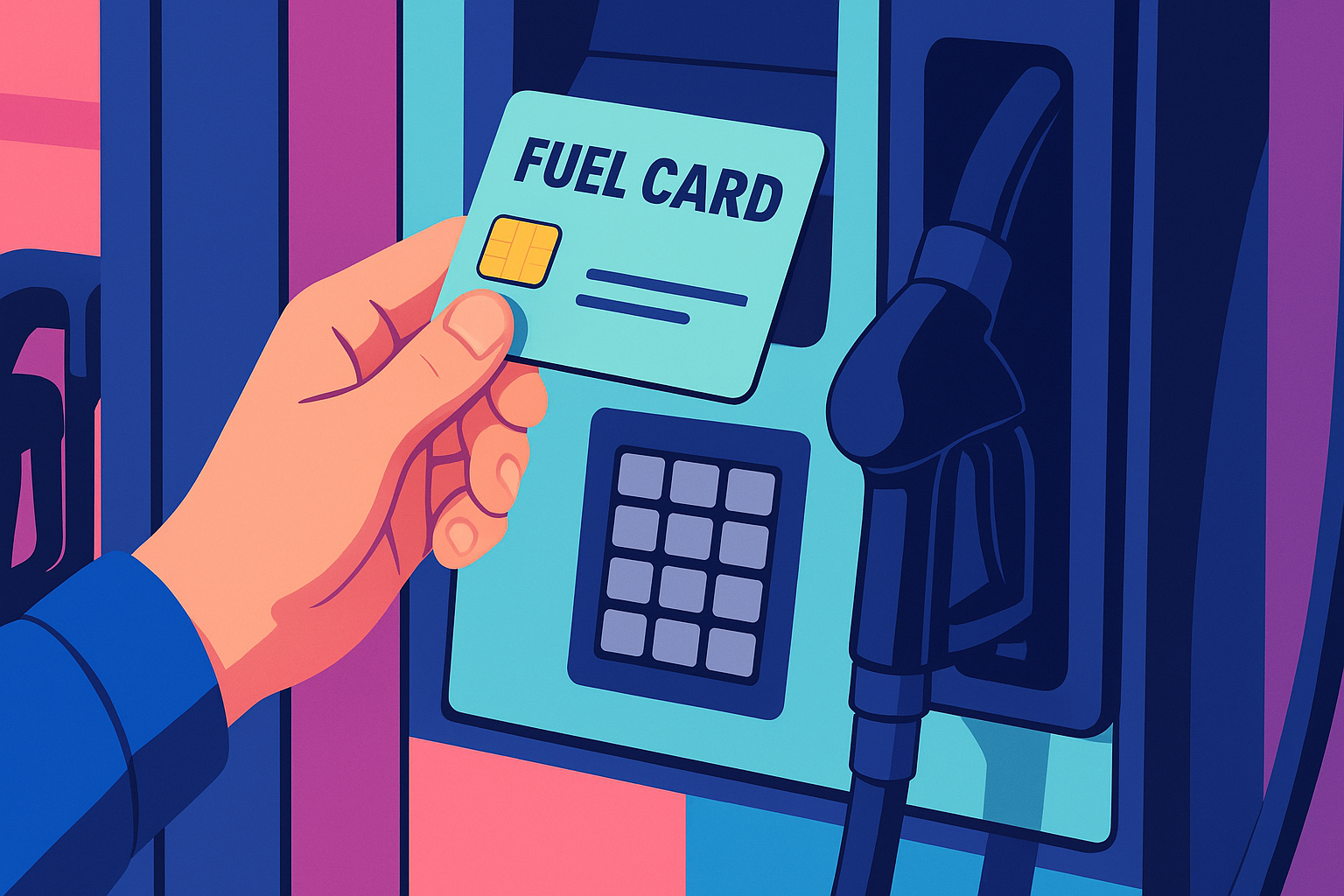Follow us on LinkedIn
Our PageIntroduction
When an employee uses a company car for a trip that’s not work related, the company is required to track that personal mileage and pay tax on it. And, companies often charge employees a cost for this personal travel to compensate — personal use chargebacks. Even though a company car or fleet program can be a big perk for employees, the value can sometimes be diminished by the financial cost of these chargebacks. Plus, personal use chargebacks take time and effort to manage — both on the part of employees and employers.
Read on to find out more about how personal use chargebacks work, their tax implications, and potential alternative options for businesses.
What are Personal Use Chargebacks?
A personal use chargeback is when a company charges an employee for using a company car for personal reasons. Anytime that an employee uses a company car for personal use — which could include running errands that aren’t work-related or commuting to a personal residence — the company is required to track this mileage. Additionally, this personal mileage is taxed by the IRS. Accordingly, many companies end up charging their employees a personal use chargeback to compensate for the funds lost. Companies may choose to either charge this amount outright, or deduct it from an employee’s paycheck.
For example, consider an employee who uses a company car for travel from the office to meetings at another workplace. That same employee also occasionally uses the company car during their lunch break to run personal errands around town. Since they’re using a company car for personal use, it’s required that this mileage is tracked and that tax is paid on it.
Implications of Personal Use Chargebacks
When it comes to company car programs, personal use chargebacks are sometimes one of the main drawbacks for employees — as it can diminish the value of a company car as an employee perk. Using a car — even a company car — for personal use is considered a taxable business expense, according to the IRS. This can be bad for employee morale, as it increases their financial burden and can reduce the amount that they see on their paycheck. Additionally, the amount spent on personal use chargebacks is an amount that employees might rather put towards their own personal vehicle, rather than a company asset.
Beyond the financial aspect of personal use chargebacks, they can also be a significant hassle for both employees and administrators to manage. As employees are required to keep detailed logs of all personal trips, they’re required to spend time and effort tracking all of these details. This can put an administrative burden on employees. What’s more, it can also be time-consuming to verify that these records are accurate and complete, creating additional work.
Additionally, on the employer side, there’s administrative work that’s required in a company car program to manage these personal use chargebacks. This can include checking that these personal trip logs are correctly completed, managing the personal use chargebacks and ensuring that they are paid, and ensuring that the required taxes are also paid. Company car programs already require substantial management, and personal use chargebacks add another layer onto this existing administrative work.
Taxes on Personal Use Chargebacks
The IRS has rules for how to track and report personal use chargebacks. It’s essential that businesses and employees follow these rules to ensure tax compliance.
According to IRS Publication 15-B,[1] fringe benefits (such as a company car) can be calculated using the fair market value (FMV) rule or the cents per mile rule. The fair market value is the amount that an employee would have to pay a third-party to either buy or lease the vehicle in an arms-length transaction. It’s important to note that the FMV is determined by the market value — it is not determined by what the employee considers to be the value of the fringe benefit or the actual costs of the company to provide the benefit.
The Cents per Mile rule is one of the ways that personal use chargebacks can be calculated, according to the IRS. For this rule to apply, the vehicle must be driven for at least 10,000 miles or more during the year, and it cannot cost more than a certain amount that is updated on an annual basis. Once these conditions are met, personal mileage is multiplied by the current IRS standard rate.[2]
When making these calculations, it’s also key to be aware of what is considered personal use according to the IRS. For example, commuting from home to a workplace is considered to be personal use, not business use.
An Alternative: Vehicle Reimbursement Programs
With the drawbacks that come with a company car program, it’s best practice to take a thorough look and determine whether it really is the best option for your business. While each company has its own unique needs, goals, and situation surrounding necessary business travel, there may be another option that’s a better fit for your company’s specific circumstances.
Vehicle reimbursement programs are an alternative to having a company car or fleet program. In a vehicle reimbursement program, employees use their personal cars — instead of a company car — for business travel. Through an accountable vehicle reimbursement program, employees keep detailed records of all business mileage and business expenses. In turn, companies are able to provide tax-free reimbursement — provided that the program and mileage fits the IRS rules.
For example, with a Fixed and Variable Rate (FAVR) reimbursement program, employers provide reimbursement for a range of business expenses of a personal vehicle, including gas, insurance, depreciation, maintenance, and more. A Cents per Mile program is another option for providing reimbursement, where business mileage can be reimbursed tax-free according to the current IRS standard rate. In any accountable vehicle reimbursement program, detailed recordkeeping is required of any business-related trips and business expenses. Additionally, each program has its own criteria to meet and rules to follow to ensure both eligibility and compliance.
Vehicle reimbursement programs can provide tax savings, as compliant reimbursements can be provided tax-free — saving both income tax and payroll tax. Additionally, these programs offer employees the freedom to use a car of their choice.
For employers, vehicle reimbursement programs can provide other important benefits, such as reducing the overhead of maintaining and storing a fleet of company vehicles. Having employees use their personal cars for work travel can also make it easier to scale, as employees bring or take a vehicle as the start or end at a company. This can help make a vehicle reimbursement program a more flexible and agile option, compared to fleet programs.
Conclusion
While a company car and fleet program can be a compelling benefit to offer employees, it often comes with a complication — using that company car for personal use. The IRS requires that personal use of a company car is tracked and detailed records are kept. Additionally, this personal mileage can be taxed, as it’s not valid business travel.
It’s important for employers, administrators and employees to fully understand how personal use chargebacks work, including their taxation. It’s also essential for them to stay aware of any changes in legislation — either federally or state-wide — that could impact personal use chargebacks or their company car program.
Another option for employers is to switch from a company car program to a vehicle reimbursement program, where employees who need to drive for work use their own personal vehicle, rather than a company car. Companies can reimburse employees for the associated business expenses through different programs like cents-per-mile, FAVR, and more.
Sources
[1] https://www.irs.gov/pub/irs-pdf/p15b.pdf
[2] https://www.irs.gov/tax-professionals/standard-mileage-rates
Disclaimer: Nothing in this blog post is legal, accounting, or insurance advice. Consult your lawyer, accountant, or insurance agent, and do not rely on the information contained herein for any business or personal financial or legal decision-making. While we strive to be as reliable as possible, we are neither lawyers nor accountants nor agents. For several citations of IRS publications on which we base our blog content ideas, please always consult this article: https://www.cardata.co/blog/irs-rules-for-mileage-reimbursements. For Cardata’s terms of service, go here: https://www.cardata.co/terms.
Share on:



